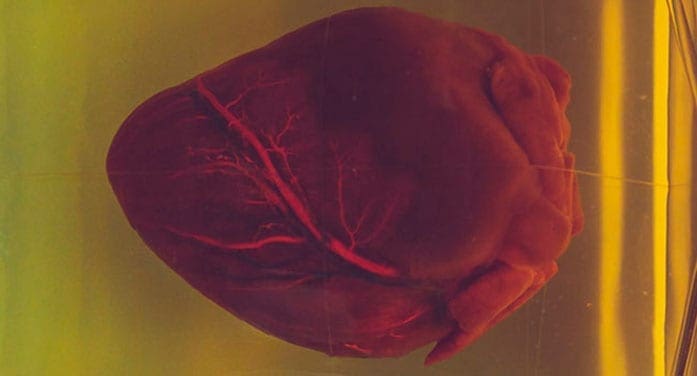Five times more women die from heart disease than from breast cancer. Yet many women don’t realize that cardiovascular disease is the leading cause of premature death for women in Canada.

Colleen Norris
Although treatments and outcomes of cardiovascular diseases are known to be different between men and women, women continue to be underdiagnosed, undertreated, undersupported and under-researched, according to Colleen Norris, professor in the Faculty of Nursing.
The “Hollywood heart attack” stereotype doesn’t fit women, said Norris, which means their symptoms are often missed. The causes of heart attack and the risk factors are also very different between men and women. Some of the risks for women can arise at an unexpectedly early age.
Cardiac researchers like Norris want Canadians to know the risks specific to women – and to share that knowledge with all the women.
“If you ask Canadian women what they are afraid of, they will say breast cancer,” said Norris.
Norris is co-chair of the Prairie working group of the Canadian Women’s Heart Health Alliance as well as the scientific director for Alberta Health Services’ Cardiovascular Health & Stroke Strategic Clinical Network.
Here is some of the information she wants women and healthcare professionals to know.
Hospitals miss women’s symptoms more than 50 percent of the time
In her research, Norris tracked the number of women who showed up at emergency departments with signs of a heart attack or stroke and were sent home without being diagnosed. Her initial research showed that between 2010 and 2020, an average of 300 women a year were discharged from Alberta hospitals, only to return with a full-blown heart attack within 30 days.
Know the warning signs for women:
- an abrupt change in how you feel;
- chest pain or discomfort;
- sharp pain in the upper body;
- breaking out in a cold sweat;
- sudden or unusual tiredness;
- unexplained nausea;
- light-headedness or shortness of breath.
Women have risk factors that men don’t
Two-thirds of research into heart disease and stroke is based on men, according to the Heart and Stroke Foundation of Canada. So it might come as a surprise to women to learn that every life stage for women, including pregnancy, poses risks to their heart health.
Women who have had prenatal complications such as gestational diabetes, high blood pressure, pre-eclampsia or protein in their urine are at significantly higher risk to develop early heart disease, Norris said.
“Getting pregnant is the first stress test you will have – it really taxes your vascular system,” she explained. “Identifying women at risk early in their lives means that it may be possible to alter that risk.”
There are other risk factors influenced by gender, such as socioeconomic inequity, health literacy and psychosocial factors related to stress at home, high workloads, tight deadlines and lack of control on the job.
The causes of heart disease can be different in women
Women are more likely than men to experience some types of heart disease, and healthcare providers may be unaware of these differences. Well-known causes in men and women include coronary artery disease, heart valve disease and an irregular heartbeat.
Women are more likely to have spontaneous coronary artery dissection (90 percent of all cases are in women), microvascular dysfunction, Takotsubo cardiomyopathy caused by severe stress or emotion, and coronary vasospasm. These have different symptoms compared with the better-known causes. Knowing more about these conditions can help you take care of yourself – and help other women in your life take care of themselves, too.
Know your personal risk factors
Ask your healthcare provider about your personal risks. What tests can be used to assess that risk – for example, blood pressure, cholesterol, blood sugar, weight – and how often should they be done? Ask for the results of the tests and how they compare to the norm.
Exercising regularly, eating a healthy diet, managing stress, minimizing alcohol intake and getting regular checkups are among the ways women can reduce their risks. Avoiding smoking or vaping can also help.
Women may have to advocate for the care they need
Given that women’s symptoms aren’t always recognized, even by medical professionals, it’s important that women make themselves heard. If you think you’re having a heart attack:
- Make it clear your symptoms are not normal for you.
- Insist on an electrocardiogram and blood tests that can diagnose a heart attack.
- Ask what your blood pressure, electrocardiogram and other test results show.
- Ask to see a doctor who specializes in heart problems.
Before you go home, ask:
- What should I do if I feel symptoms again?
- Where can I follow up if I have questions about my heart?
- What should I do if I feel symptoms again?
Colleen Norris is among the women’s health experts speaking at a free event on March 8 featuring a discussion of the disparities that exist for women in health research and care and the importance of women advocating for themselves and their loved ones. Find out more and register.
| By Allie Voisin
Allie is a reporter with the University of Alberta’s Folio online magazine. The University of Alberta is a Troy Media Editorial Content Provider Partner.
The opinions expressed by our columnists and contributors are theirs alone and do not inherently or expressly reflect the views of our publication.
© Troy Media
Troy Media is an editorial content provider to media outlets and its own hosted community news outlets across Canada.


